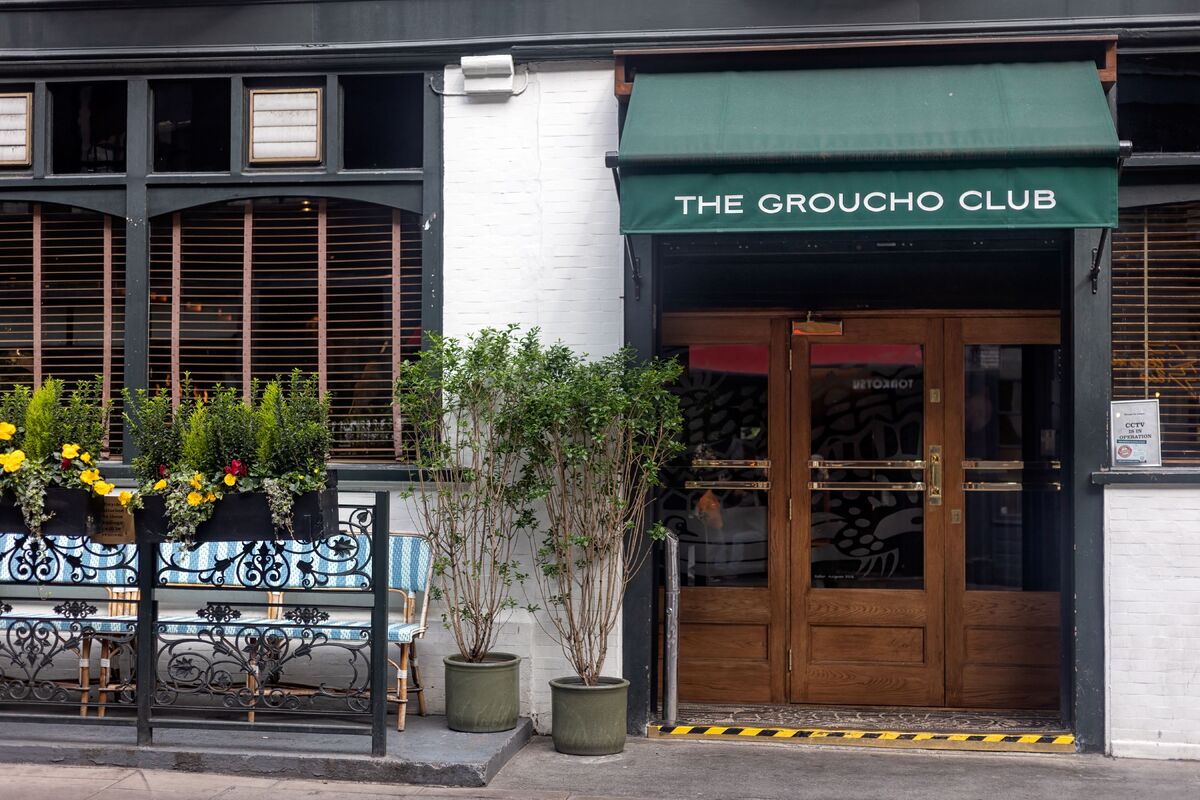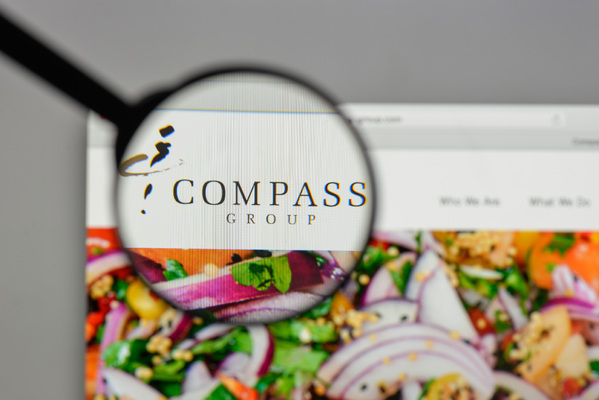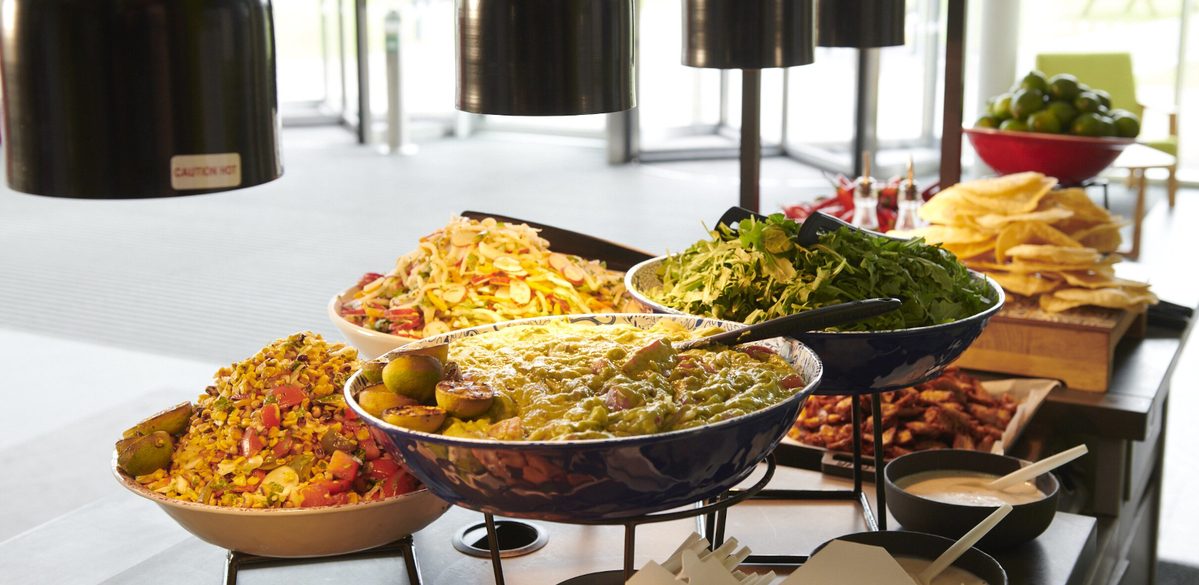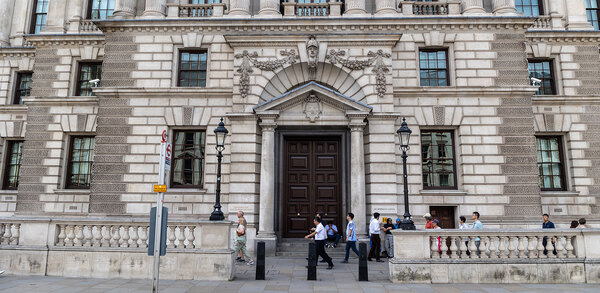Ian Sarson outlines a new direction for Compass
When Ian Sarson took over from Ian ‘Elmo' El-Mokadem as group managing director of Compass UK and Ireland, many viewed his appointment as a sign of changing times at the company. As his first 100 days in office draw to a close, Janie Stamford asks him about his plans for the future.
The appointment of food service veteran Ian Sarson as group managing director of Compass UK and Ireland has been hailed by many as a sign of changing times at the company. On 1 April he took over from Ian "Elmo" El-Mokadem whose own five-year tenure at the top of Britain's biggest catering firm was made remarkable by his initial lack of direct hospitality experience. But Sarson is a caterer to the core and a renewed focus on food will be welcomed by many within the business.
A teenage crush led him into the industry that Sarson says he is now "madly in love with", having followed a girl to catering college. When she changed her mind and went into nursing, Sarson's passion became hospitality. A move into contract catering followed soon after graduation and he never left.
In 1987 Sarson joined Taylorplan Catering, which was later bought by Marriott and then ultimately Gardner Merchant (now Sodexo). He worked there for the best part of two decades including a four-year spell as the managing director of Sodexo Hong Kong and China. Upon returning to the UK Sarson joined Compass to run an area with which he was already familiar: healthcare. It wasn't long before the catering giant's education, defence, government, offshore and in-store business was added to his portfolio, which led many industry observers to correctly tip Sarson as the next man for the top spot.
All eyes are on Sarson to see what's next for Compass. With a wealth of public sector experience at his disposal, he has a keen eye on the growth opportunities that will arise as a result of the Government's budget-slashing while ensuring the company is well positioned to take advantage of the golden decade of sport ahead of the UK.
After a restructure of the business under Elmo, who also introduced new support infrastructure, Sarson sees this stage of Compass's evolution as the time for action. As his first 100 days in office draw to a close, we find out his plans for the future.
Unlike your predecessor Ian El-Mokadem, you come from a food service background. Does that mark a shift in the strategy at Compass?
I don't think so. For the last couple of years we've been focusing on building an infrastructure of tools and systems to support our front line teams, but we've come to the end of that construction and we're now in the deployment phase. I think it's absolutely right to have someone in charge that understands service and the culture of the industry and is passionate about that.
Elmo's skills were really valuable during that period of reconstruction but I'm confident that I'm the right person to be taking us forward.
Last year's financial results revealed a £600m cash pot. Will Compass be hitting the acquisition trail?
If the appropriate opportunities present themselves for in-fill acquisitions, then with proper due diligence we may well consider them. We have an obligation to use the cash we're generating to improve the long-term interests of our shareholders and acquisition is one way to do that.
Where the strategic fit is right and we can take our back office costs and really leverage the incoming strength of an organisation, as well as overlay our own strength, it's got to be worthy of consideration.
We bought McColl's newsagents in healthcare last year because they're particularly good at retailing in hospital front entrances. That's a skill we didn't have and it's working well. Buying big lumps of what we already do isn't a logical best use of our capital.
What impact has the recession had on business?
The sports and leisure sector felt it first, and probably deepest, and the City was next. Restaurant Associates saw significant headcount reductions, with clients virtually ceasing to exist overnight in some instances. But we have quite a balanced portfolio in the UK, and our public sector businesses didn't really feel the chill winds of recession during the first 18 months of what's now been a two-year recessionary period for the private sector.
Those same chill winds are going to be blowing through the public sector and we believe we've got solutions that can deliver significant savings and improve quality.
Manufacturing was also hit. When Vauxhall stopped producing cars for three months, we couldn't feed the staff. But although they're still not in growth, those sectors have seen the end of the fall.
How can Compass support the public sector?
We're telling our clients that we can generate income on their behalf where that income doesn't already exist. For example, in the front entrance of hospitals we can generate £200,000 to £300,000 of rental stream for an NHS Trust from space that's often unused, while also improving the experience for the patients and visitors.
Before the recession £300,000 might not have been seen as a big deal, but it certainly is now. We're not going to get out of this financial situation with one or two big set-piece answers; it's going to take lots of incremental steps to change our behaviour as a society.
How will you present Compass as a cost-effective alternative to in-house facilities?
There's got to be a real change in mindset from the public sector around the idea of outsourcing. They should consider it insourcing expertise. We don't do what we do in just one hospital; we do it in 50 hospitals in the UK and around 2,000 in the US, and we bring all of that experience to bear. With our scale, we know a bit more than each individual hospital or university management team.
Has the recession changed the way contracts are won?
Price has always been a key factor. We want to strive to provide the best, sensible price rather than the lowest price. You can always offer the lowest price by not doing the job and we don't believe in taking short term risks for short term success. What the recession has done for Compass, and more broadly for the industry, is make us look long and hard at the superfluous processes; eliminating waste from the supply chain, labour platform and wherever it occurs.
Our ‘Why pay more?' range was launched very early on and that quick response was key to us getting through the recession in good shape.
What is your prediction for the next 12 to 18 months?
It's going to be a difficult period for the industry and I think there's a likelihood of either flat or slightly negative growth in some sectors.
When asked if he thought the recession would be V-shaped or U-shaped, Richard Cousins [Compass's chief executive] said it's going to be L-shaped, and I think he's probably right. We're in for a significant period of austerity, within which there are some significant opportunities for Compass. Our public sector is simply unaffordable in its current guise and we want to be there to help provide the solutions where we can, but we're going to have to take the pain just like everybody else.
What do you think the food service landscape will look like over the next few years?
Grab-and-go and desk-place ordering facilities will grow as people continue to be time-poor, and clients are going to consider more the cost of the big set-piece staff and visitor restaurant's real estate.
A very significant portion of our business is P&L, where we take risk, invest capital and live or die by what goes through the till. In that situation you have to be very alive to consumer insight, because if your offer doesn't satisfy the consumer then you starve.
Three or four years ago Compass made a big shift, under Elmo's guidance, from relying on anecdotal experience to decide what people want to actually asking them and designing offers around that consumer insight. There's a greater need for agility; not over-engineering solutions so that they are flexible and can cope with people's varying price point.
Are there now fewer subsidised contracts?
There is a definite move towards fixed price contracts, and frankly I welcome that shift. For the majority of my career I've worked in situations where we've been entirely responsible for the end result, both financially and qualitatively, and that can only be a good thing. That's not to say we don't have entire responsibility in a subsidised situation, but clients will question where the value is in such a service.
The idea behind subsidised contracts back in the late 1960s was to give people a tax break. But that's when lots of people only ate in the workplace. The plethora of eating options surrounding almost anywhere means there is less of that. Choice and quality have improved dramatically and there's much more of a service ethos. We need to work smarter, more entrepreneurially and more service-focused than our predecessors ever had to.
What changes have you made since you took the job on 1 April?
The biggest change is where we have combined elements of marketing with purchasing and supply chain, and have come up with a commercial function. Rather than just being responsible for buying product and getting it to the units, they are now responsible for using the information we get from Epos and consumer insights, developing the right products with our manufacturers and growers and making sure they're appropriate for each of our individual sectors.
All planned changes have been made, which means some people are going to be leaving the business - most of whom were responsible for building the tools and systems we'll be using. It doesn't matter how good they are or how much you like your builders; when they've finished your house you don't have them sitting in your lounge for the next three years. Other than that, the last year has seen no wholesale redundancy programmes anywhere.
What's your long term vision for Compass?
I've been excited by this business every day for the past 26 years and continue to be nothing but enthused by the opportunities that we face. There will of course be challenges over the next five years, but I see a very bright future for Compass.
The public sector will engage more, out of necessity and the removal of political dogma opposition to outsourcing, and we've been working hard to make sure our offers and services are compelling to potential customers. I see growth in terms of our current business and the range of businesses we provide, so it will be a very interesting five to 10 years. It's the best job in the world.
PREPARING TO BENEFIT FROM THE ‘GOLDEN DECADE OF SPORT'
As the UK enters what has been widely described as the "golden decade of sport", Sarson says Compass is well positioned to benefit. "We've got long-term relationships with the Millennium Stadium in Cardiff, Twickenham, The Oval, Edgbaston, the Rose Bowl and Chelsea Football Club - the list is very significant," he explains.
In addition, Compass looks after the 14 Jockey Club racecourses, the O2 and Wembley Arena, which will both be involved with the 2012 Olympics, and the jewel in the British summer sport crown, Wimbledon.
"We've got the most iconic portfolio of sporting venues in the UK, so we're in a very good position to get the most out of these exciting sports events," he says.
IAN SARSON ON FILLING THE HOSPITALITY SKILLS GAP
Ian Sarson believes that Compass, as the UK's contract catering market leader, has a responsibility not only to itself but also the industry to help plug the ongoing skills gap. As a result, he says, Compass actively engages with hospitality educators to ensure their curriculums reflect industry needs, such as teaching people how to sell and communicate, support services capability, and profit protection.
"Teaching people how to silver serve is frankly irrelevant to 99% of today's market," he explains.
More than 2,000 14 to 16-year-olds have gone through the Compass Junior Chef Academy in the last two years, with around 60% choosing to stay in hospitality once they leave school. Of the 750 apprentices at the business, more than 200 are chef apprentices.
Around 40,000 students have been nutritionally trained by Compass in schools and colleges and this year Compass has helped more than 2,000 staff members achieve NVQs.
The caterering giant also takes graduates from other industries because Sarson believes it's important to not be single-minded about where Compass sources its people. He adds: "We're not going to rely on anyone else to fill our skills gap; we'll do it."
















